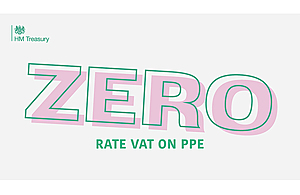Sellafield Ltd takes important first steps to prepare for phased restart of highest priority work
Having successfully ‘ramped down’ operations at the Sellafield site by pausing reprocessing work and construction work on major projects to focus on the key services to keep the site safe and secure, the business has built confidence in its ability for key workers to begin some of the most important high hazard and risk reduction work again.
Since the Covid-19 pandemic escalated, the number of people working on the Sellafield site has been less than a fifth of ‘normal’ operations, with approximately 1,500 key workers still going to work on site.
By agreeing a small number of packages of work which can start again, it will add approximately 120 people to this number, with a further circa 120 people starting to attend off-site offices mainly in Warrington to access specialist equipment and software.
It will be a cautious, limited, phased restart of work over the coming weeks using ‘lead and learn’ principles on specific work packages to build understanding on helping people safely return to work.
Detailed risk assessments have determined how many people can safely work in every location being used, taking into account factors such as social distancing, PPE requirements, operational procedures and a huge range of other considerations around people being able to get to work safely and stay safe and comfortable once there.
Reprocessing operations are still paused, but we are preparing to start work on reducing some of our highest hazards.
A small amount of construction work will be beginning on BEPPS-DIF, a new facility needed to accept waste from one of our highest hazard legacy waste silos.
All of the work can also all be stopped quickly if necessary, for example if a second wave of Covid-19 impacts on the availability of key workers.
The decision has been taken to begin phasing in new work while the national lockdown continues because on the balance of risk, it’s the safest thing to do. Thousands of other Sellafield Ltd employees will continue with their existing arrangements of working remotely where possible.
We have always said we will only progressively restart certain operations when safe to do so. The excellent preparation and risk analysis work we have done so far has given us the confidence to be able to restart the most important work which is of national interest. Safety is in our DNA. If any organisation can work safely around Covid-19, we can,” said Sellafield Ltd’s Chief Executive Martin Chown.
We’ve thought long and hard about the questions ‘Can we? Should we? Will we?’ before restarting any piece of work. But we also have to be aware of the risks involved in not restarting more work – every day of delay caused by the pandemic is another day further in the future where a nuclear incident could in theory happen.
I am incredibly proud of every single individual in our organisation and our supply chain, who has kept the site safe and secure through this crisis. Our key workers are doing a vital job and it’s a major step forward to be able to start cautiously building up the number of people delivering our critical mission,” said Martin.

